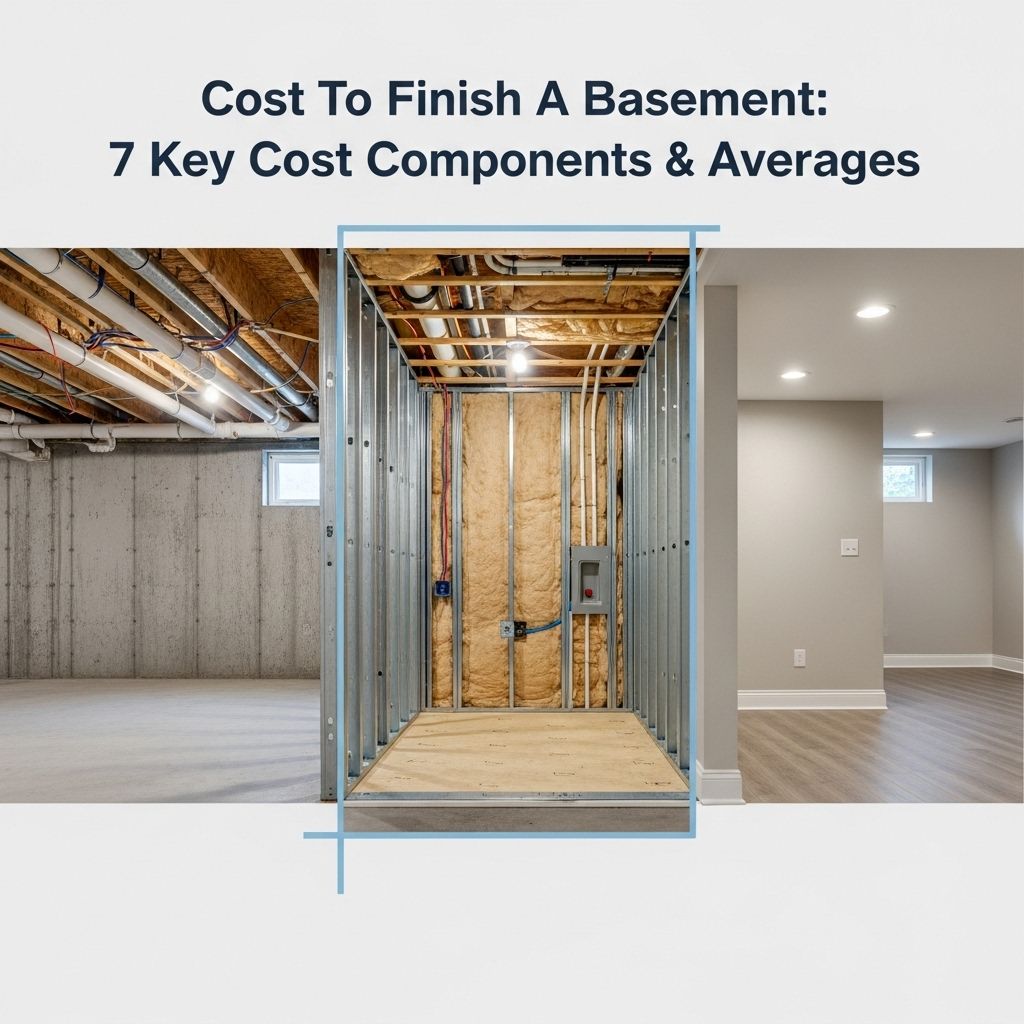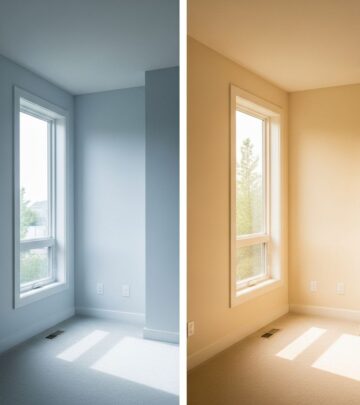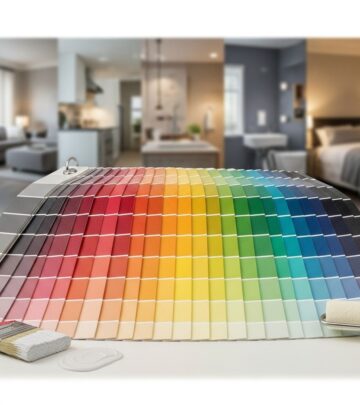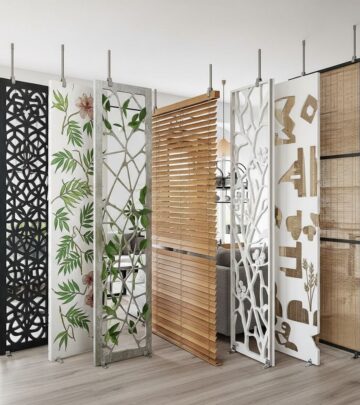Cost To Finish A Basement: 7 Key Cost Components & Averages
Transform your underutilized basement into a valuable living space with this comprehensive cost guide

Image: HearthJunction Design Team
What Is the Average Basement Finishing Cost?
Transforming your unfinished basement into a functional living space is one of the most rewarding home improvement projects, adding valuable square footage to your home while potentially increasing its resale value. However, before embarking on this renovation journey, it’s crucial to understand the financial commitment involved.
The national average for finishing a basement of approximately 1,000 square feet typically ranges between $7,000 and $23,000. This wide price range is influenced by several key factors that can significantly impact your overall budget.
Key Cost Factors for Basement Finishing
When budgeting for your basement finishing project, consider these primary cost drivers:
- Size of basement: Naturally, larger basements require more materials and labor, increasing overall costs proportionally.
- Current condition: A partially finished basement will cost less to complete than a completely unfinished space.
- Permits: The more extensive your renovation, the more permits you’ll likely need, especially when extending electrical, plumbing, or HVAC systems.
- Labor expenses: Professional labor typically accounts for approximately 40% of your total project cost.
Cost by Basement Size
Basement finishing costs generally range from $7 to $23 per square foot of finished space. This considerable variance reflects the potential complexity and scope of your specific project. Here’s a breakdown of what you might expect to pay based on common basement sizes:
| Basement Size (sq ft) | Average Cost Range |
|---|---|
| 500 sq ft | $3,500 – $11,500 |
| 1,000 sq ft | $7,000 – $23,000 |
| 1,500 sq ft | $10,500 – $34,500 |
| 2,000 sq ft | $14,000 – $46,000 |
Keep in mind that upgrading to premium materials or undertaking extensive renovations will push costs toward the higher end of these ranges regardless of square footage.
Cost by Basement Type
The current state of your basement significantly impacts the overall cost to finish it properly. Below, we’ll explore the differences between unfinished and partially finished basements.
Unfinished Basement
An unfinished basement typically features:
- Exposed pipes and ductwork
- Minimal insulation
- Concrete floors and walls
- Basic electrical and plumbing (usually just enough for a washer, dryer, or freezer)
- Limited functionality beyond storage or basic laundry needs
Converting a completely unfinished basement requires comprehensive work addressing foundational elements, insulation, moisture control, and all finishing aspects. This comprehensive approach results in higher overall costs but provides the opportunity to design the space exactly to your specifications.
Partially Finished Basement
A partially finished basement may already include:
- Some drywall installation
- Basic flooring
- A bathroom or rough plumbing
- Partial connection to home HVAC systems
- Some insulation work
These spaces might function as a laundry room or home gym but typically lack the comfort and aesthetic appeal of a fully finished living space. Since some of the structural and utility work is already complete, finishing costs will be lower than starting from scratch with an unfinished basement.
Essential Components and Their Costs
Understanding the cost breakdown of individual basement finishing components can help you prioritize elements based on your budget and needs.
Framing
Creating the structural framework for your basement’s walls is a fundamental step in the finishing process. Framing costs typically range between $7 and $16 per linear foot, with the total expense determined by your basement’s layout and the number of rooms you plan to create. An open floor plan requires less framing and can be a strategic choice for budget-conscious renovations.
Insulation
Proper insulation is crucial for creating a comfortable, energy-efficient basement space. Options include:
- Spray foam insulation: Approximately $2,500 for professional installation
- Blown-in insulation: Around $1,400 on average
- Fiberglass batts: The most affordable option at $300-$600 for installation
Flooring
Flooring choices significantly impact both comfort and cost. Options range from:
- Finished concrete: $2-$6 per square foot (stained, polished, or epoxy-coated)
- Carpet: $1-$10 per square foot, depending on quality
- Luxury vinyl plank: $3-$7 per square foot
- Laminate: $4-$6 per square foot
- Hardwood: $8-$15 per square foot for premium options
For a 1,000 square foot basement, expect flooring costs between $1,500 and $4,500 for standard options, with premium materials pushing costs higher.
Drywall Installation
Finishing your basement walls with drywall creates a clean, finished appearance. Professional drywall installation typically costs between $1.50 and $3 per square foot, including materials and labor. For a 1,000 square foot basement with 8-foot ceilings, budget approximately $1,500-$3,000 for complete drywall installation.
Ceiling Options
Your ceiling choice affects both aesthetics and access to utilities:
- Drywall ceiling: $2-$3 per square foot
- Drop ceiling: $3-$6 per square foot
- Painted exposed ceiling: $1-$3 per square foot
Electrical Work
Extending electrical service to your basement is essential for lighting, appliances, and entertainment systems. Professional electrical work generally costs between $50 and $100 per hour, with the total depending on the complexity of your needs. Basic electrical work might start around $800, while comprehensive electrical installation could exceed $3,000.
Plumbing Considerations
Adding a bathroom or wet bar to your basement significantly increases functionality but also adds substantial costs. Basic plumbing work starts around $1,000, while a complete bathroom addition might range from $5,000 to $15,000 depending on fixtures and complexity.
Cost-Saving Tips for Basement Finishing
While basement finishing represents a significant investment, several strategies can help manage costs without compromising quality:
- Opt for an open floor plan to minimize interior walls and doors
- Choose cost-effective flooring options like luxury vinyl plank or epoxy-coated concrete
- Utilize existing plumbing and electrical lines when possible
- Consider partially finishing certain areas or creating a phased approach to renovation
- Explore creative wall treatments like painted concrete or textured panels in some areas
- Handle suitable DIY tasks like painting or simple demolition work
Return on Investment
A properly finished basement can offer substantial returns, with estimates suggesting up to 86% ROI at resale. Beyond financial returns, a finished basement provides immediate lifestyle benefits through expanded living space that can serve as a family room, home office, guest suite, entertainment area, or home gym.
Planning Your Basement Finishing Project
Before beginning your basement renovation, consider these important planning steps:
- Address any moisture or water issues before starting finishing work
- Consult with professionals to identify any structural concerns
- Research local building codes and permit requirements
- Create a detailed budget with a 10-15% contingency for unexpected costs
- Develop a clear vision for how you’ll use the finished space
- Consider future needs when planning electrical and plumbing work
Frequently Asked Questions (FAQs)
Q: How long does it typically take to finish a basement?
A: The timeline for finishing a basement varies based on size and complexity, but most projects take between 4-8 weeks. Larger or more complex renovations may require 2-3 months for completion.
Q: Do I need permits to finish my basement?
A: Yes, most basement finishing projects require permits, especially when making structural changes or adding electrical, plumbing, or mechanical systems. Check with your local building department for specific requirements in your area.
Q: Is it worth finishing a basement?
A: Finishing a basement can be a worthwhile investment, offering up to 86% ROI while providing valuable additional living space. The value depends on your local real estate market and the quality of the finished space.
Q: Should I hire professionals or DIY my basement finishing project?
A: While some aspects of basement finishing can be DIY-friendly (like painting), structural work, electrical, plumbing, and HVAC modifications should typically be handled by licensed professionals to ensure safety and code compliance.
Q: What’s the most cost-effective flooring for a basement?
A: Luxury vinyl plank (LVP) offers an excellent balance of durability, moisture resistance, and affordability for basement applications. Epoxy-coated concrete is another budget-friendly option that provides good moisture resistance.
References
- https://www.thisoldhouse.com/foundations/reviews/cost-to-finish-basement
- https://www.thisoldhouse.com/basements/21017847/read-this-before-you-finish-your-basement
- https://www.thisoldhouse.com
- https://www.ranneyblair.com/blog/the-cost-of-basement-remodeling-in-atlanta-a-comprehensive-guide-for-homeowners/
- https://www.bankrate.com/homeownership/cost-to-finish-basement/
Read full bio of medha deb










